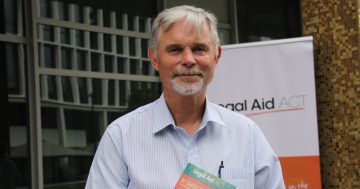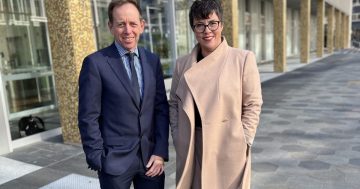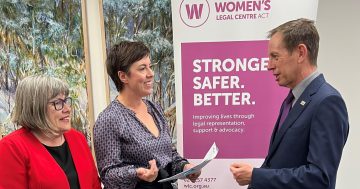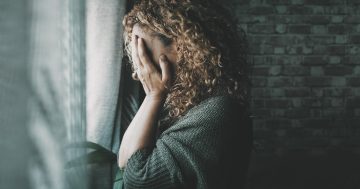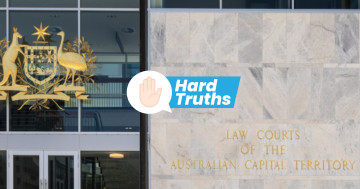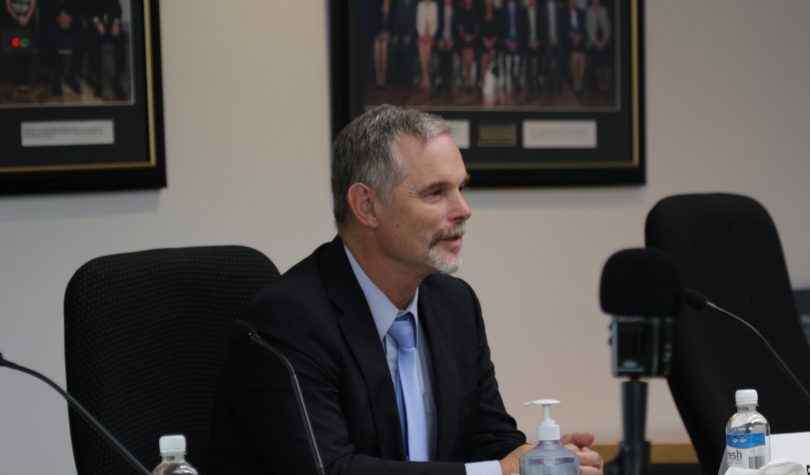
Legal Aid ACT CEO John Boersig. Photo: Dominic Giannini.
There has been a consistent rise in reports of domestic violence incidents since the start of the pandemic, Legal Aid ACT CEO John Boersig has told the Justice and Community Safety Committee Hearings, despite an initial drop in reporting during the first few weeks of COVID-19.
“COVID has underlined the unfortunate prevalence of family violence … [and] highlighted the difficult situations that some people face,” Mr Boersig said.
“If you were at court on a Monday, you would be astounded by the number of people coming through needing that kind of support.”
The number of calls to Legal Aid’s Helpline has also increased significantly, more than doubling in the last five years from around 9000 calls a year to 21,000 last year.
This is expected to increase to 24,000 this year.
When asked if the organisation had enough resources to keep up with the increased demand, Mr Boersig said the issue was a reflection of the “justice gap” that impacts people of lower socioeconomic statuses.
People applying for a legal grant and representation through Legal Aid are subject to an asset and income test. The justice gap refers to people who cannot afford private legal assistance but do not qualify for a grant of legal aid.
“It is a question of how many people you want to assist,” Mr Boersig said. “We assist people for grants of Legal Aid [on] around $411 a week once you take children and mortgage or rent away.
“The poverty line is around $386 so the justice gap is very real in terms of the number of people who can receive legal aid and the number of people who can effectively pay for private representation.
“One of the major issues is providing representation for people in court and that is a function of resourcing that is available. That is one of the risks we face; I would not want to see that level reduced any further.
“We can always do more with more money, but we do the best we can with what we are provided.”
To help people facing family or domestic violence – 90 per cent of whom approaching Legal Aid are women – the organisation works with the Women’s Legal Centre to provide reduced services for women who would otherwise be ineligible for legal aid.
This mainly applies to Legal Aid helping the women initiate interim orders, particularly if they have assets but not enough cash for legal representation, Mr Boersig said.
This also applies to accessing the Family Dispute Resolution Program, which provides dispute resolution services.
More information about accessing legal aid in the ACT is available at www.legalaidact.org.au.
If you or anyone you know is experiencing family or domestic violence, you can call the Domestic Violence Crisis Service’s 24/7 helpline on 62 800 900.
In an emergency, call Triple Zero (000).














